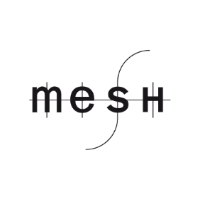Did you ever wonder how humans have shaped and were shaped by planet Earth throughout history? Understanding such deep and enduring interactions between humans and the Earth system presents a central challenge of the 21st century. How can scientific modelling approaches contribute to a better understanding of the complex and dynamic nature of the relationship between humans and the functioning of the Earth?
The cross-faculty initiative of the HESCOR project brings together the research strengths of the UoC in Earth system modelling, climate change science, archaeological research on past human-environment relations, and humanities perspectives on the place of humans in nature. The aim is to gain a more comprehensive insight into the past, present, and future of human interrelations with changing climate and environments.
The six interconnected lectures explore key topics of research featured by HESCOR, ranging from the long-term evolution of human cultures and their interactions with environments in the Late Pleistocene and Early Holocene to the latest methodological developments and applications of innovative computational modelling approaches across Earth system science. The series concludes with an examination of effective strategies for communicating research results, insights and challenges to a wider audience.
14.04. Deep-Time Cultural Evolution - Current Research Questions
(Andreas Maier / Silviane Scharl)
28.04. Modelling Human-Environment Entanglements
(Kate Rigby / Roman Bartosch / Carolin Schwegler / Shumon Hussain / Dominik Ohrem)
12.05. Human & Earth System Coupled Research
(Christian Wegener / Annika Vogel)
26.05. The Earth System - Modelling Present and Past
(Nikki Vercauteren / Oliver Kern)
23.06. Network Modelling and Machine Learning Approaches for Coupling Human and Earth System Data
(Angela Kunoth / Max Brockmann / Gregor Gassner / Andrés Rueda-Ramírez / Boqiang Huang)
07.07. Data Communication: Reaching Specialists and the Masses
(Verena Förster / Elena Robakiewicz)
Assignment of the course to Studium Integrale (SI) and extracurricular programmes (EA); publication via guest auditor and senior studies.
Language: German
Further information for students of the University of Cologne: Klips
Website: HESCOR lecture series
